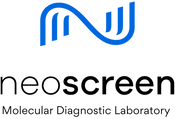December 28, 2020
A Second Opinion
Immunotherapy and Targeted Personalized Therapy are the promising new treatments in cancer, which result from the molecular profile of the tumor (FFPE or Liquid Biopsy) using specialized molecular biology molecular techniques. And specifically with the use of multiple genes in NGS for data extraction such as TMB, MSI etc.
In a clinical report from a corresponding molecular test (which involved a multiple NGS gene panel in FFPE), information such as TMB, MSI, somatic mutations, CNVs, Fusions, etc. were reported. Information of significant clinical importance and extremely useful tool for the therapist. doctor.
~
Generally in a corresponding molecular analysis in NGS panel genes, for an oncological sample, to be valid and reproducible, must be mentioned by all means the following technical characteristics:
a) Panel size se MB (required size for TMB calculation)
b) average coverage (eg 500X or 1000X or how much?)
c) % MAF (1% or 5% or 10%?). 10% is of low clinical significance as important information is lost. 5% is moderately acceptable. 1% is optimal. However, in order to achieve the MAF 1%, a high average is required, so a higher cost for the laboratory.
d) Available raw data, both for the reproducibility of the methodology and for the repetition of the analysis (reanalysis) in a short period of time, as the information is constantly updated.
~
A patient has the right to seek a SECOND or even a third opinion about his serious health problem, having in his medical file the raw data of NGS analysis, such as having an x-ray or blood tests. The raw data belong to the patient and NOT to the laboratory.
~
Why is it necessary to repeat the analysis or reanalysis process? The answer is given in the following article in PLOS ONE.
In the above example of somatic mutations there are many algorithms for the so-called variant calling, ie the process from which the data on which the clinical report is based emerge (incomplete or incorrect data implies incomplete or even incorrect final report). Some of the most important algorithms for the analysis of oncological samples are a) mutect (requires tumor: normal sample) b) arrow, c) varscan etc.
These algorithms if analyzed the same sample give significantly different results:
"We have performed a comprehensive evaluation using exome sequencing and targeted deep sequencing data of paired tumor-normal samples from five breast cancer patients to evaluate the performance of nine publicly available somatic variant callers: EBCall, Mutect, Seurat, Shimmer, Indelocator, Somatic Sniper , Strelka, VarScan 2 and Virmid for the detection of single nucleotide mutations and small deletions and insertions. We report a large variation in the number of calls from the nine somatic variant callers on the same sequencing data. "PLoS One. 2016; 11 (3): e0151664.
~
Conclusion: A clear analysis process and access to raw data as well as the complete technical characteristics of the NGS methodology are required. Blackbox reporting methodologies should be avoided. Because as mentioned in the latest editorial of JAMA ONCOLOGY: "The accuracy of sequencing results is of paramount importance to patients, clinicians and those paying for testing services." On the importance of analytic validity in genomic medicine. @JAMA_current editorial.
~
Patients and physicians should request NGS analysis Raw Data for A SECOND OPINION and avoid laboratories that are not accessible.
~
"Do patients and research subjects have a right to receive their genomic raw data? An ethical and legal analysis.
In several legislations like the new European General Data Protection Regulation, GDPR, patients do in principle have the right to receive their raw data.
